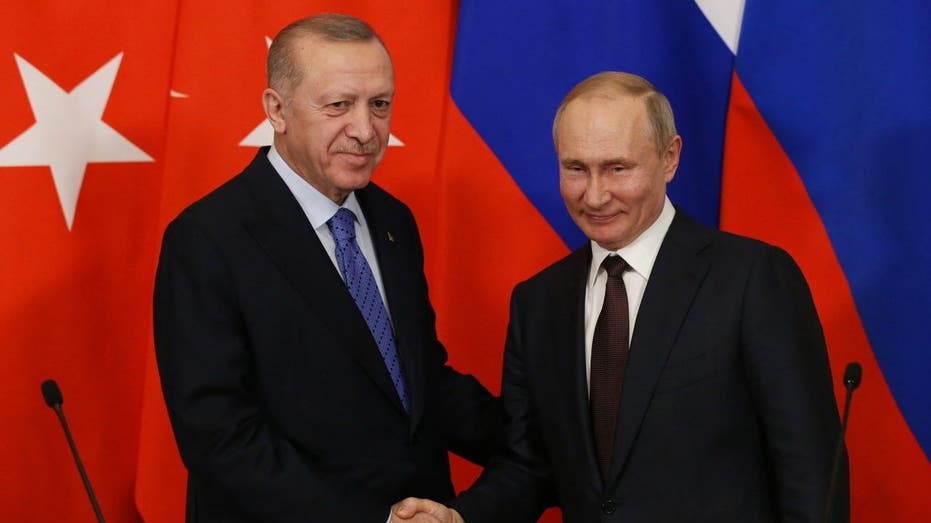Bipartisan Push Aims to Curb Erdogan's Turkey Over Closer Ties to U.S. Rivals

Sarah Johnson
March 8, 2025
Brief
Bipartisan U.S. lawmakers introduce a bill to reclassify Turkey from Europe to the Near East in State Department policy, citing Ankara’s closer ties with Russia, China, and Iran.
A bipartisan group of U.S. lawmakers is rolling out legislation to formally redefine Turkey's status at the State Department, shifting it from a European designation to a Near Eastern one. This move reflects growing concerns over Turkey's deepening alliances with nations often at odds with America and NATO interests.
The Turkey Diplomatic Realignment Act, spearheaded by Representatives Brad Schneider (D-Ill.) and Gus Bilirakis (R-Fla.), seeks to realign Turkey’s designation in U.S. foreign policy. The proposed legislation is a direct response to Ankara’s increasingly close ties with Russia, China, Iran, and even Hamas, which many see as incompatible with Western security principles.
"Turkey is at a crossroads, but Erdogan has made his choice," said Rep. Schneider. His pointed remarks reflect longstanding frustrations with Turkish President Recep Tayyip Erdogan’s foreign policy, which some argue has undermined NATO unity while still seeking the perks of being a Western ally. Ouch.
Bilirakis echoed these sentiments, calling out Erdogan’s actions as counterproductive to U.S. interests and regional stability. "The time has come for official U.S. foreign policy to more accurately reflect the realities of this hostile regime’s conduct and for Erdogan to be held accountable," he said.
Of course, Turkey wasn’t going to let this slide without a rebuttal. An official from the Turkish embassy in Washington fired back, asserting, "Türkiye’s European identity is an undeniable historical and geostrategic fact." The statement highlighted Turkey’s longstanding ties to NATO and other European bodies, painting the country as an integral part of the region’s framework. Sounds like Turkey isn’t thrilled about being pushed out of Europe’s diplomatic circle.
Critics, however, remain unconvinced. Jonathan Schanzer, Executive Director of the Foundation for the Defense of Democracies, minced no words during a recent Congressional hearing. He described Turkey as a country behaving "too often like an adversary," citing its support for Middle Eastern terrorist groups and rogue states, as well as its knack for using its NATO membership as leverage to extract concessions from Washington. A headache turning into a migraine indeed.
One glaring example of this behavior? Turkey’s purchase of the Russian-made S-400 missile defense system, which sent shockwaves through NATO. While much of the alliance imposed economic sanctions on Russia following its invasion of Ukraine, Turkey maintained cozy trade and energy ties with Moscow, even as others tried to wean off Russian energy dependence. Erdogan’s bromance with Vladimir Putin hasn’t gone unnoticed.
The legislation, if passed, would require the State Department to reassign Turkey’s diplomatic categorization within 90 days. It also calls for a five-year congressional review to assess the implications of Turkey’s pivot away from Europe. Proponents argue this is long overdue, with Endy Zemenides of the Hellenic American Leadership Council saying, "An honest evaluation of the U.S. foreign policy bureaucracy reveals that we have unwittingly granted Turkey a 'lobby'...wholly undeserved by a country that has, at best, become 'neither friend nor foe.'"
It’s clear that Ankara’s balancing act—playing both sides between East and West—has worn thin with U.S. lawmakers. As Erdogan continues to cozy up to America’s rivals, this bipartisan effort might just be the wake-up call Turkey needs—or at least, that’s the hope.
Topics
Editor's Comments
Erdogan seems to be playing a dangerous game of diplomatic musical chairs, and you have to wonder how long Turkey can keep straddling the East-West divide before someone pulls the rug out. That 'neither friend nor foe' line really sums up the awkward limbo Turkey finds itself in. Maybe this legislation is the nudge the U.S. needs to stop pretending Ankara is still singing from the NATO hymn sheet.
Like this article? Share it with your friends!
If you find this article interesting, feel free to share it with your friends!
Thank you for your support! Sharing is the greatest encouragement for us.



